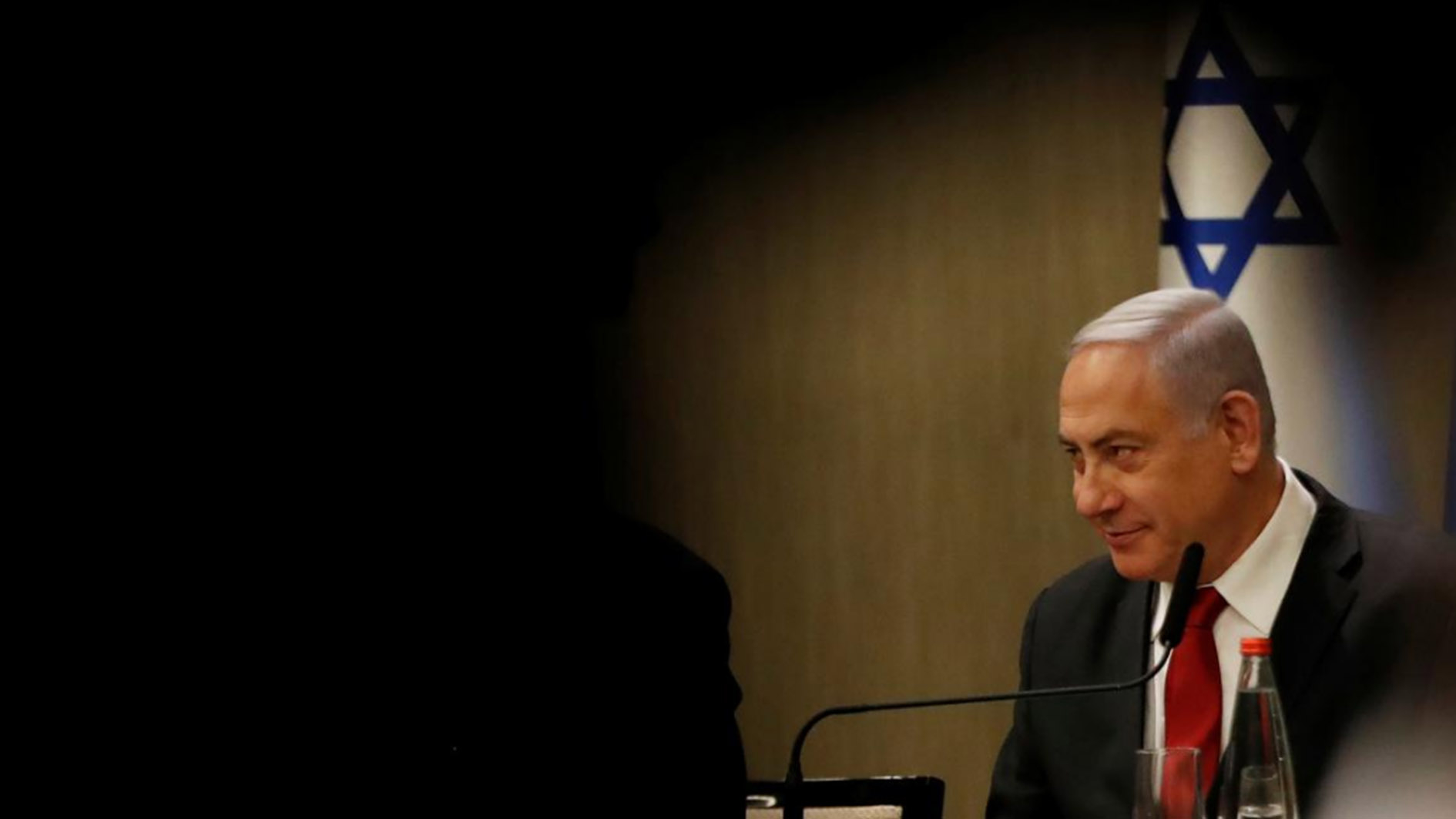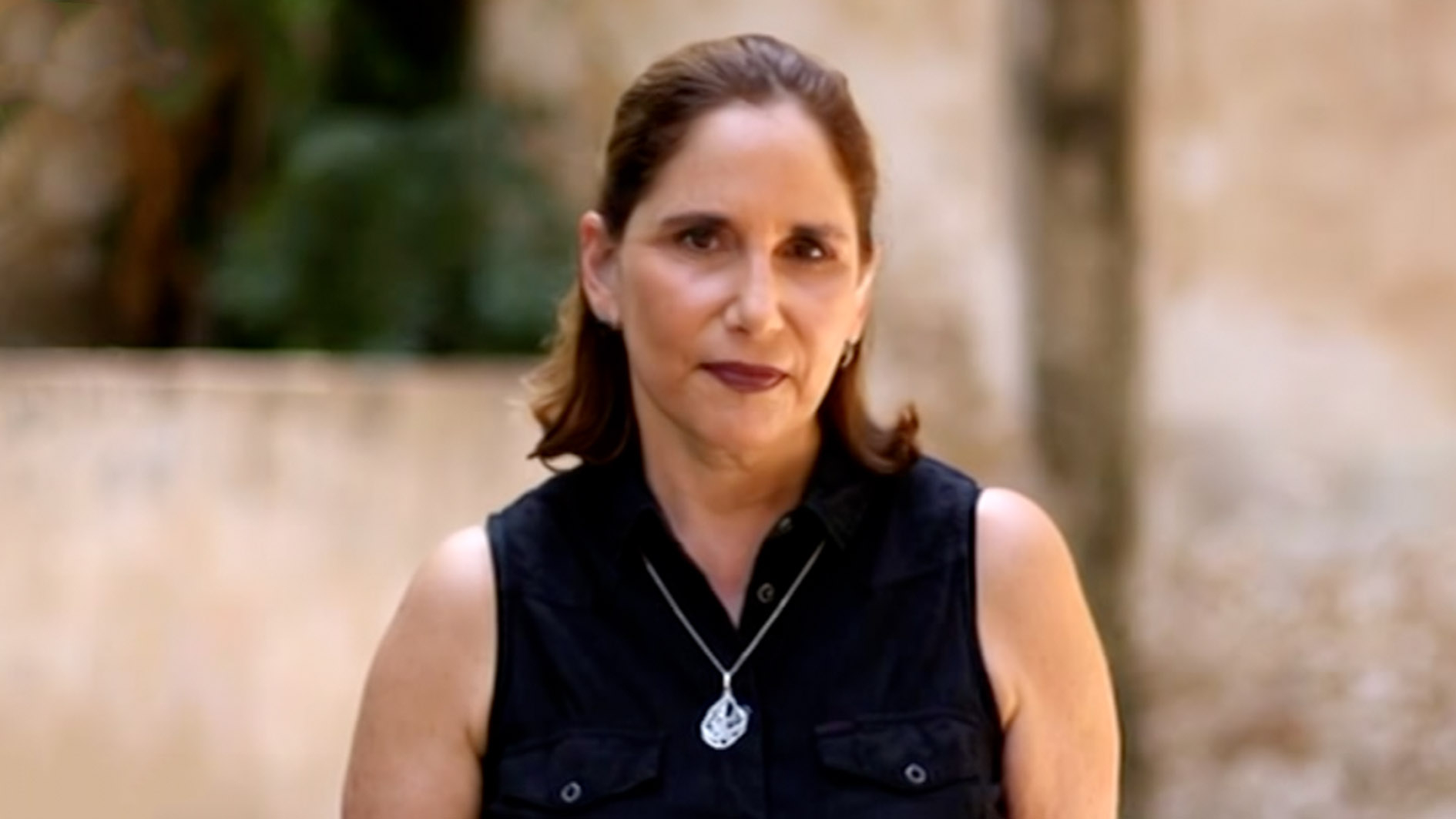00:25

The centrist party of Israeli election challenger, Benny Gantz, rejected on Thursday an offer by Prime Minister Benjamin Netanyahu to join forces in a governing coalition as Israel's election ended with no clear winner.
"We will not enter a coalition led by Netanyahu," senior Blue and White leader Moshe Yaalon told reporters at an event attended by Gantz.
Netanyahu voiced disappointment at Gantz's rejection but said he remained open to talks.
"I was surprised and disappointed by the fact that, as of now, Benny Gantz still refuses my call to meet," Netanyahu said on Twitter. "Gantz, my offer that the two of us meet stands. It's what the public expects of us."
The change of strategy reflected Netanyahu's weakened position after he failed again in Tuesday's election, which followed an inconclusive ballot in April, to secure a parliamentary majority.
"During the election campaign, I called for the establishment of a right-wing government but to my regret, the election results show that this is impossible," Netanyahu said earlier on Thursday in a video message, calling on his election challenger Gantz to join him in forming "a broad unity government" instead.
Read More:
Israel election: Will Netanyahu remain in power?
03:09

Israel election
Netanyahu hinted at a possible rotating premiership deal with Gantz, noting that Peres, a left-wing leader, had forged a coalition with conservative Yitzhak Shamir in which they rotated top office between 1984 and 1988.
President Reuven Rivlin, who commands wide respect in Israel in his largely ceremonial position, said he welcomed Netanyahu's unity call. Under Israeli law, Rivlin taps a party leader to try to form a government after the final vote tally is in.
The campaigns run by Netanyahu, 69, and Gantz, 60, pointed to only narrow differences on many important issues, and an end to the Netanyahu era would be unlikely to bring about significant changes in policy on relations with the United States, the regional struggle against Iran or the Palestinian conflict.
With Israeli media reporting more than 95 percent of votes counted in Tuesday's election, a Likud-led right-wing, religious bloc looked poised to control 55 of parliament's 120 seats, with 56 going to a center-left alliance.
On Wednesday, Gantz said he hoped for a "good, desirable unity government". But he also ruled out forming one with a Netanyahu-led Likud, citing looming corruption charges against the prime minister.
Netanyahu denies any wrongdoing.

Israeli Prime Minister Benjamin Netanyahu, Israeli President Reuven Rivlin and Benny Gantz, leader of Blue and White party, stand next to each other at a memorial ceremony for late Israeli President Shimon Peres, at Mount Herzl in Jerusalem, September 19, 2019. /Reuters Photo
Israeli Prime Minister Benjamin Netanyahu, Israeli President Reuven Rivlin and Benny Gantz, leader of Blue and White party, stand next to each other at a memorial ceremony for late Israeli President Shimon Peres, at Mount Herzl in Jerusalem, September 19, 2019. /Reuters Photo
"Mr Clean”
Gantz is a newcomer to politics. Many voters saw him as a "Mr Clean", an alternative to Netanyahu and the cloud of alleged criminal misdeeds hanging over him.
Netanyahu's call for a broad government preceded a scheduled visit later on Thursday by Jason Greenblatt, an architect of U.S. President Donald Trump's as-yet unveiled plan for Israeli-Palestinian peace.
Israeli cabinet minister Tzachi Hanegbi, a senior Likud member, said he believed Greenblatt was coming to discuss the peace blueprint.
Palestinians, who seek a state in the West Bank and Gaza Strip, with East Jerusalem as its capital, have rejected the Trump plan out of hand, accusing the president of pro-Israeli bias.
"As to whether he (Greenblatt) will be presenting the plan, I have no idea," Hanegbi said on Army Radio.
With Israeli politics in flux, Netanyahu canceled his annual speech at the U.N. General Assembly next week, a spokesman said on Wednesday about a visit that might have provided an opportunity to meet with Trump.
Netanyahu highlighted his close ties with Trump in his election campaign. But in Los Angeles on Wednesday, Trump appeared to distance himself from Netanyahu, amid political stalemate in Israel.
He told reporters he had not spoken to Netanyahu since Tuesday's ballot and said: "Our relationship is with Israel".
(Cover: Israeli Prime Minister Benjamin Netanyahu delivers a statement during a news conference in Jerusalem September 18, 2019. /Reuters Photo)